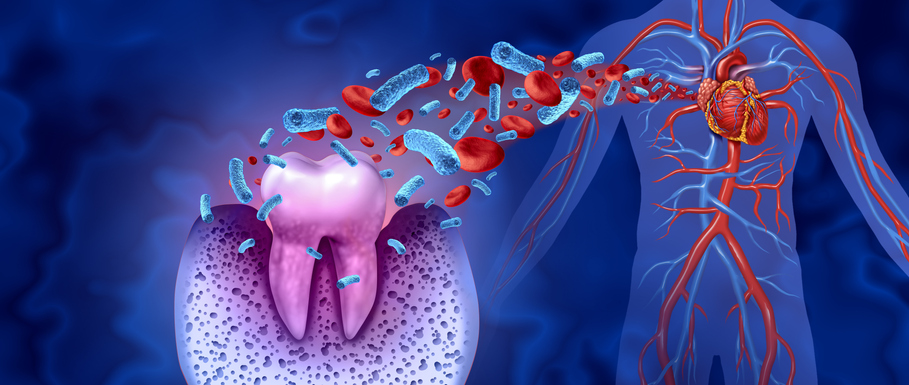
As the United States government ramps up efforts to close healthcare gaps and achieve health equity across the country, dental care looms as a significant obstacle. Many Americans don’t have access to the dental care they need, a problem exacerbated by the lack of universal integration of oral health into primary or behavioral healthcare. The two are inseparable despite the inexplicable line between dental and medical health. Unless oral care in the United States becomes a standard part of preventive health, the consequences will continue to be dire.
Dental care is healthcare

With the Rise of AI, What IP Disputes in Healthcare Are Likely to Emerge?
Munck Wilson Mandala Partner Greg Howison shared his perspective on some of the legal ramifications around AI, IP, connected devices and the data they generate, in response to emailed questions.
Recent research from the Journal of Clinical Periodontology linking poor dental health to a significant increase in Covid-19 complications is evidence of the dire need to align dentistry into traditional healthcare settings further. The link between oral hygiene and maintaining good overall health is not news to the medical community, but the data is prescient.
As novel diseases such as monkeypox threaten public health across a broader population, greater alignment between the healthcare and dental industries is paramount. Physicians and dentists alike must be able to deploy scalable technologies that introduce improved preventative care and early detection. Such capabilities are essential to preserving and improving patient health in both dental and medical settings.
An impossible choice
In a 2015 report, the Federal Reserve revealed that approximately 25 percent of Americans elected not to pursue dental care they needed because they couldn’t afford it. It’s a dangerous trend, and it’s why the U.S. Department of Health and Human Services (HHS) described in 2017 the integration of oral health and primary care as “the number one goal in combating oral health disparities.”
The Journal of Clinical Periodontology data highlighting the connection between gum disease and Covid-19 reflects the urgent need for greater alignment between the healthcare and dental industries. For decades, the medical community has known that our dental system has struggled to address tooth decay and periodontal disease, two common oral diseases linked to other chronic conditions, such as diabetes and heart disease. For the dental community to successfully preserve patient oral and medical health, it needs widespread deployment of technologies capable of granting better preventative care. These tools will lead to early detection of conditions and less invasive and more affordable treatment for patients.
The fight for health equity
The U.S. government is encouraging health systems to improve population health by closing care gaps and promoting health equity. This reality can only be achieved by breaking down the artificial barrier between dental and medical care.
Since chronic diseases, including heart disease, dementia, and diabetes, can be detected (and treated) earlier with proper oral healthcare, dentists and doctors alike must be able to deliver timely, accurate, and comprehensive diagnoses. This hastens the urgency to leverage technology such as artificial intelligence (AI) to improve clinical outcomes and practice efficiencies.
The power of connective care
The widespread adoption of dental AI is critical for medical-dental integration (MDI) because it greatly enhances a health professional’s ability to identify systemic diseases. Only by bringing together medical and dental care can genuine change come to healthcare, meeting the oral health needs and associated chronic diseases of our most vulnerable populations.
For too long in the United States, the notion that dental care is optional or an indulgence has harmed patients. Only by eliminating the senseless divide between the mouth and the rest of the body can we address one of the most urgent health issues in the nation. Early identification and intervention for oral diseases can transform whole body health, providing more comprehensive oral and traditional medical care.
Florian Hillen is the founder and CEO of VideaHealth, an MIT spinout and leading dental-AI company working with leading DSOs, insurers, and other companies in the dental industry. Previously, he conducted research at the intersection of engineering and social science at MIT’s Institute for Data, Systems and Society and at Harvard Business School. He also worked for McKinsey & Company and founded Ninu, a digital healthtech startup. He holds two master’s degrees from MIT in computer science and technology policy and a bachelor’s in management and technology. He completed the first German State exam in medicine, as well.














